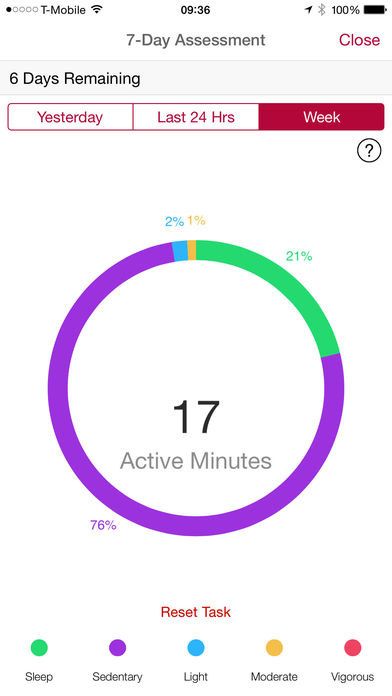 3009
3009
 2016-12-19
2016-12-19
More than a year and a half ago, Apple unveiled a new breed of iPhone apps that would let people participate in scientific studies anytime, anywhere — at least in theory. Now, a new study indicates that smartphones do have the potential to capture useful data about thousands of people’s health and exercise habits in their daily lives, not just during a trip to the doctor or a clinical trial center.
But it also shows that if iPhones are to become the next big tool in science, researchers will have to conquer a challenge familiar to every app developer: how to keep people from getting bored and quitting.
The study reveals the first results of an app that was part of Apple’s much-hyped foray into health, a field that has been relatively slow to digitize. “This is the blossoming of mobile device medical research,” said Eric Topol, a cardiologist and genetics researcher at the Scripps Research Institute who was not involved with the study, in an interview with BuzzFeed News.
At a widely publicized and livestreamed event in March 2015, Apple introduced ResearchKit, a tool to build apps to study conditions like breast cancer, Parkinson’s disease, type 2 diabetes, and asthma — to name a few of the ResearchKit apps that launched that month.

One of the apps, MyHeart Counts, run by a team at Stanford University, aimed to measure people’s cardiovascular health. Between March and October 2015, nearly 50,000 people from all 50 states signed up for the weeklong study, and 40,000 of them submitted health data of some kind. These unusually high numbers suggest that smartphone-conducted studies can reach many more people than traditional studies ever have.
Before this, “there hasn’t been 40,000 patients capturing their data about their activity through a medical research app,” Topol said. “That is a standout.”
At the same time, relatively few people took the extra step of doing some of the tasks that the app asked them to do. Just shy of 5,000 people completed a six-minute walk test, a common proxy of heart health, with their phones in hand, according to the study. And while 40,000 people filled out some portion of the app’s health questionnaires, only about 1,300 provided all the information needed to calculate their personalized health risks.
That squares with a recent study that showed that for the first five ResearchKit apps that launched, including MyHeart Counts, the percentage of daily users quickly dropped to 25% or below within the first three months.
“This is a very significant problem with this new form of medical research,” Topol said. “You accrue lots of people, but to keep them engaged, long-term, is perhaps the greatest challenge.” Apps could keep people coming back, he suggested, by offering participants something valuable in return, like personalized insights about their health.
Source: buzzfeed